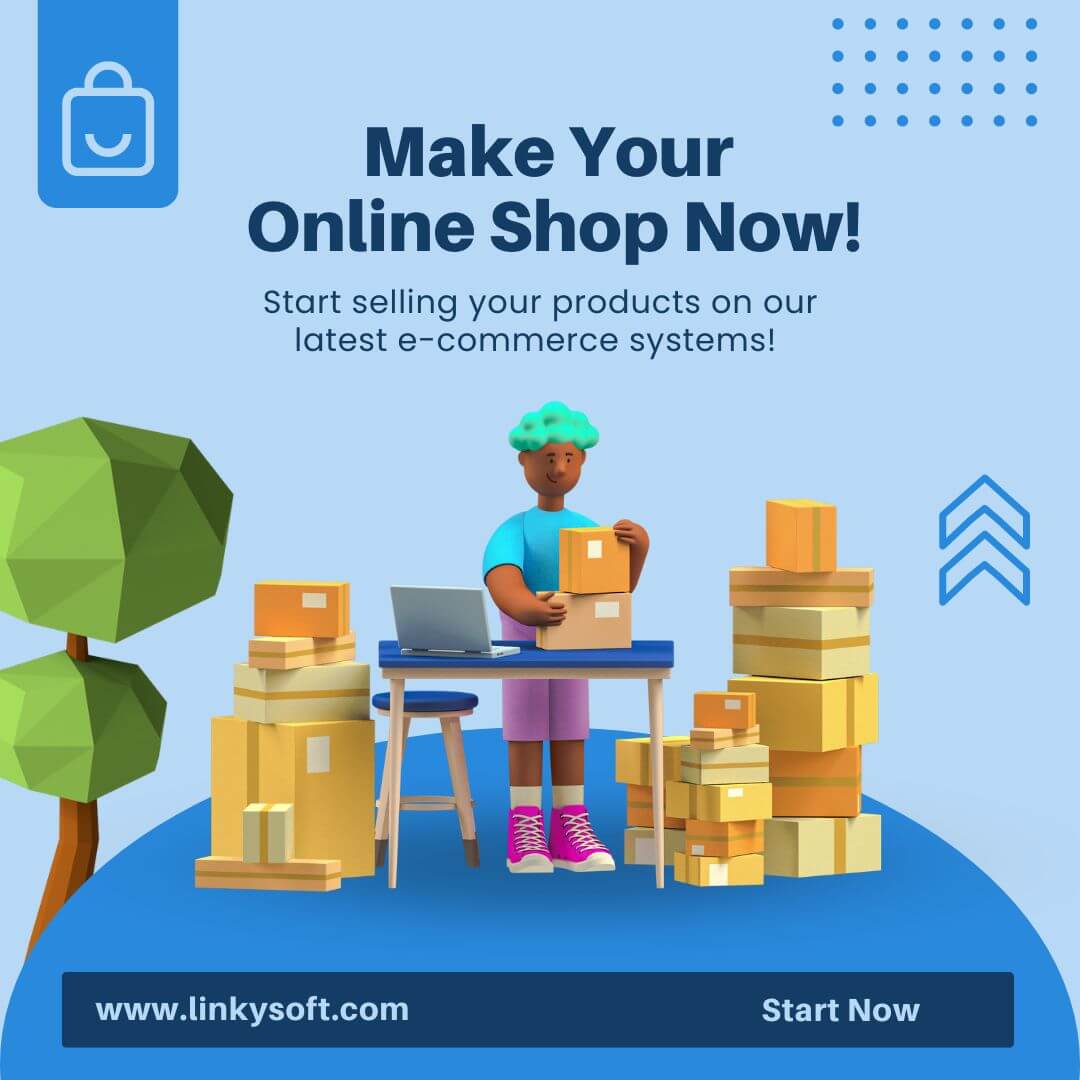In today's rapidly evolving digital economy, having an online store is no longer just an option; it is a necessity for businesses to thrive. With more customers shopping online than ever before, the potential for growth in e-commerce is enormous. For those who are new to the e-commerce world, the idea of setting up an online store may seem overwhelming, especially if you are working with a limited budget. Thankfully, many platforms allow you to create an online store for free and with ease, making it accessible for businesses of all sizes.
This guide will provide an in-depth look at the top platforms that allow you to create an online store without breaking the bank. Each platform comes with its own set of tools, features, and limitations, which we will explore in detail. Whether you are looking for a fully hosted solution or a customizable platform, we have the options covered. By the end of this article, you'll have a clear understanding of which platform is the best fit for your business.

1. Why an Online Store is Crucial for Your Business
Before diving into the platforms, it's important to understand why creating an online store is vital for the success of your business. The growth of e-commerce is undeniable, with online sales accounting for a significant portion of retail revenue globally. Customers today expect convenience, and the ability to shop online from anywhere, at any time, offers them exactly that. Moreover, an online store gives you the opportunity to reach a global audience, expand your brand, and increase sales.
For small businesses, the ability to create an online store for free is a game changer. It removes the barriers to entry and allows you to focus on growing your business. Below, we will explore some of the most important reasons why having an online store is crucial for any business.
Reaching a Global Audience
With a physical store, your reach is limited to the local area. However, an online store enables you to reach customers all over the world. This increased reach not only opens up new markets but also boosts your revenue potential. Platforms like Shopify and WooCommerce make it easy to set up a store that can handle international orders, different currencies, and shipping logistics.
Lower Operational Costs
Setting up a physical store requires significant upfront investment—rent, utilities, staff, and inventory, among others. By contrast, an online store requires minimal investment, especially if you use a free platform. This allows businesses to keep overhead costs low while still providing a professional shopping experience to customers.
Data-Driven Insights
Another major advantage of operating an online store is access to detailed analytics and insights about customer behavior. Platforms like Wix and WooCommerce provide built-in analytics tools that allow you to track key metrics such as site traffic, conversion rates, and sales trends. These insights enable you to make data-driven decisions that can improve the customer experience and boost sales.
2. Choosing the Right Platform: Key Factors to Consider
Choosing the right e-commerce platform is one of the most important decisions you will make for your online store. The platform you choose will affect everything from the design of your store to the ease of managing orders and customers. There are several factors you should consider when selecting the best platform for your needs:
Ease of Use
How Beginner-Friendly Is the Platform?
If you're new to e-commerce, you’ll want a platform that is easy to use and doesn’t require technical expertise. Platforms like Wix and Squarespace are known for their user-friendly interfaces and drag-and-drop design features. These platforms allow you to build a professional-looking store without needing to write a single line of code.
Customization Options
While ease of use is important, you’ll also want a platform that allows you to customize your store to match your brand’s look and feel. Platforms like WooCommerce offer extensive customization options, but they may require some technical knowledge. On the other hand, platforms like Wix offer easy customization options with pre-built templates.
Cost of Ownership
While many platforms offer free plans, there are often costs associated with maintaining and scaling your online store. For example, while Wix and Shopify offer free or low-cost entry plans, you may need to upgrade to a paid plan for additional features such as custom domains, marketing tools, and advanced analytics.
Support and Resources
Having access to reliable support can make or break your e-commerce experience, especially if you encounter technical difficulties. Some platforms, like Shopify and BigCommerce, offer 24/7 customer support via phone, chat, or email. On the other hand, free platforms like WooCommerce rely more on community forums and third-party resources for support.
3. Top Free Platforms for Creating an Online Store
Now that you have a better understanding of what to look for in an e-commerce platform, let's dive into the top platforms that allow you to create an online store for free and with ease. Each platform offers a unique set of features and benefits, so it's important to choose the one that best fits your business needs.
Wix
Why Wix is Great for Beginners
Wix is a popular platform for creating websites and online stores, especially for beginners. With its drag-and-drop editor, Wix makes it easy to design a professional-looking online store without any coding knowledge. The platform offers a variety of free templates that are optimized for e-commerce, allowing you to get started quickly.
Wix Features
- Drag-and-drop website builder
- Free plan available
- Multiple payment gateways
- Mobile optimization
- Inventory management tools
The main limitation of Wix’s free plan is that your store will display Wix ads, and you won’t be able to use a custom domain. However, upgrading to a premium plan removes these limitations and provides additional features such as marketing tools and analytics.
WooCommerce
Perfect for WordPress Users
If you are already using WordPress, WooCommerce is one of the best free options for creating an online store. WooCommerce is a powerful, open-source e-commerce plugin that integrates seamlessly with WordPress, giving you full control over the design and functionality of your store.
WooCommerce Features
- Free and open-source
- Unlimited product listings
- Customizable with themes and plugins
- Supports multiple payment gateways
- Extensive community support
WooCommerce offers extensive customization options, but it does require some technical knowledge to get the most out of it. If you are comfortable using WordPress and want full control over your online store, WooCommerce is an excellent choice.
4. Advanced E-commerce Management Systems: Linkysoft Solutions
For businesses looking for more advanced features and scalability, Linkysoft offers a range of e-commerce management systems designed to cater to different business needs. These systems go beyond the basics of free platforms and provide advanced tools for managing inventory, vendors, and more.
Cartz - E-commerce Management System
Cartz is a robust e-commerce management system that simplifies the management of online stores. It offers advanced inventory management, order tracking, and integration with multiple payment gateways, making it ideal for businesses that need a comprehensive solution to manage their e-commerce operations.
Togar - Multi-Vendor E-commerce System
For businesses that manage multiple vendors, Togar offers a specialized multi-vendor e-commerce platform. It allows businesses to easily manage multiple vendors, track sales, and streamline operations. This is perfect for businesses looking to expand into marketplace models.
Togar Pro - Advanced Multi-Vendor System
Togar Pro is an advanced version of the Togar system, offering additional features such as custom vendor onboarding, advanced analytics, and integration with third-party tools. It is designed for businesses that require more sophisticated vendor management and reporting tools.
5. Conclusion: The Future of E-commerce and Your Online Store
The e-commerce landscape is continuously evolving, and businesses must adapt to stay competitive. Creating an online store is the first step in building a successful online presence, but choosing the right platform is crucial. Whether you opt for a free platform like Wix or WooCommerce, or choose an advanced solution like Linkysoft's e-commerce systems, the key is to select a platform that aligns with your business goals and offers room for growth.
The platforms discussed in this article offer different advantages depending on your business size, technical skills, and future plans. As you continue to grow your online store, you may find the need to upgrade to a more advanced platform or integrate additional features. Regardless of where you start, the tools are available to help you succeed. Take the time to evaluate your options and choose the platform that best suits your needs. With the right platform and strategy, you can build a thriving online store that serves customers globally and grows with your business over time.








